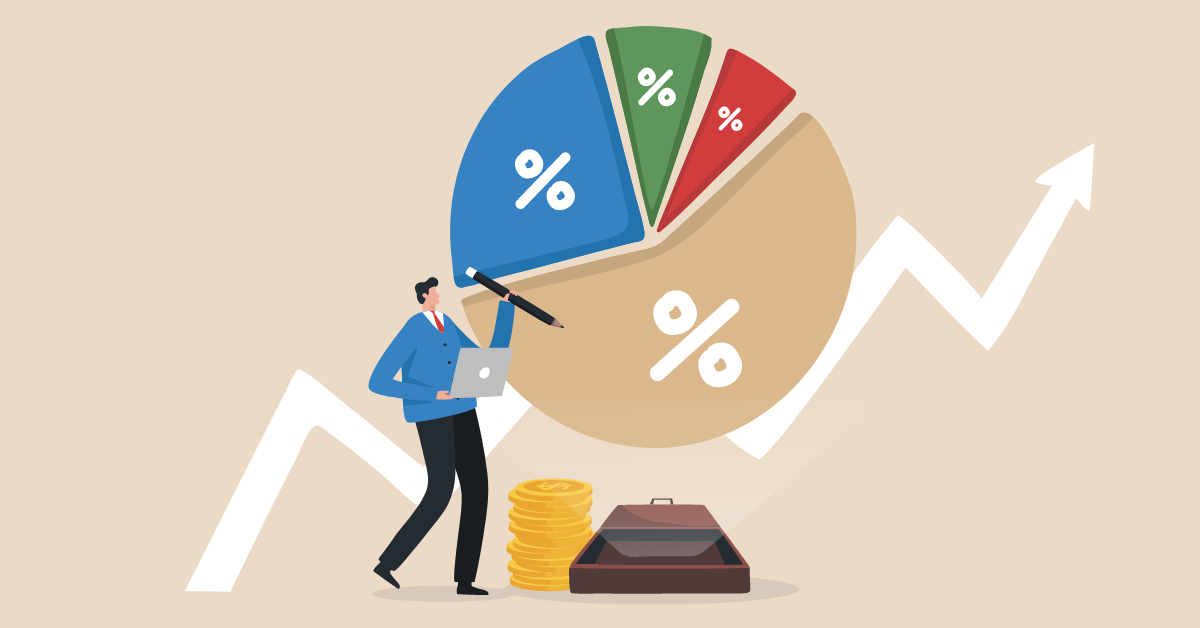One of the oldest sayings on Wall Street goes-
“Let your winners run and cut your losers. It’s easy to make a mistake and do the opposite, pulling out the flowers and watering the weeds.”
– Peter Lynch (Successful American investor, mutual fund manager, and philanthropist)
When constructing a long-term equity stocks portfolio, many of us treat our profitable stocks with much concern while ignoring the existence of the losing stocks in the portfolio.
Are you also in the dilemma of whether to keep the losing stocks or get rid of them immediately?
This article will explain what you should do with the losing stocks and how to recover losses.
What are Losing Stocks?
When the stock price drops heavily, and you cannot recover even 20-30% of your invested capital, such stocks are called the losing stocks. Such low-performing shares continue to perform poorly, resulting in you losing money in the stock market.
Types Of Stock-trading Losses
When you trade in the stock market, you may lose money, and there are various types of stock trading losses. Let’s see which are those types:
-
Loss Of Capital
You incur a capital loss when you buy a stock but see the price fall and remain low until you finally decide to sell it at a much lower price than the purchase price.
-
Opportunity Loss
You incur such a loss when you have to wait longer for the stock to reach the purchase price before selling it. Indeed, you get back your invested amount at a zero return, that is when transaction charges are not taken into consideration. The opportunity loss, in this case, is the amount of investment you could have invested in another instrument.
-
Missed Profit Loss
You incur a loss by not selling a stock that significantly rises first but shows a sharp fall, and you hold these shares thinking they would recover, but they don’t recover, and you lose your money. Such a loss is a missed profit loss since you could not recognize the right opportunity to exit the stock.
What To Do With Losing Stocks In Your Portfolio?
If you analyze investment behavior, you will agree that the pain of a loss is significantly greater than the delight of a win. As a result, when we face a financial loss, we tend to convince ourselves that the asset will recover and we will at least break even.
Continue reading to know how long you should hold a losing stock.
- Hold on to the shares you believe are “clearly” good and sell the losing shares, regardless of their past performance.
- The cost price is irrelevant when deciding what to do with a losing stock in your portfolio.
- If you wouldn’t buy more of a losing stock, sell it. Don’t put off until you break even. There are probably better methods to invest your money.
- If you make a mistake selecting a company’s stocks, it’s preferable to accept the loss now rather than later.
How To Recover Losses From The Stock Market?
The most significant risk in the stock market is not taking any chances. Making money in the stock market involves entering the markets with intellectual preparation and discipline.
Perform Investment Portfolio Review
It is an excellent idea to perform an investment portfolio review as a calendar quarter ends to ensure that it delivers the expected goals. Individual investors underperform the market because they enter and exit their investments at inopportune times.
Timely Rebalancing Your Portfolio
Rebalancing a portfolio entails reallocating assets to a predetermined composition. Most suggestions call for a review of allocations at least once a year. Rebalancing allows investors to sell high and buy low, taking profits from high-performing areas and reinvesting them in regions with no significant growth.
Exercising Accountability
If you have suffered a loss, you need to accept that you have made a bad call. Accepting responsibility for your losses is the first step in gaining control of your investments.
Know When to Exit a Stock
Investors must understand that a company’s share price may rise after exiting their position, as no one can predict exiting at the highest price. When enthusiasm for a sector peaks, limiting its exposure is usually the opportune moment.
While there are no surefire answers to when is the best moment to sell, investors can utilize these indicators to tip the scales in their favor.
Examine Your Options
Examine your options and see if there is anything you could have done differently. Some traders, and even investors, wait for a better opportunity, while others reverse their trade during a bull market, and they not only make up for losses but progress toward gains.
Redefine Your Investment Goals
Determine your risk tolerance and then select the stocks you want to invest in. If you link your assets to your goals, you won’t have to scramble for funds when you need them.
Have an Investment Strategy
An investment strategy serves as a guide during your financial journey. It will assist you in getting back on track if domestic and global upheavals disrupt your assets at the macro level.
Planning influences every area of personal finance, including taxation, insurance, and investment goal achievement. A well-placed investment strategy helps in reducing losses, optimizing profits, and averting the agony of a financial loss.
Be Inspired
Use your loss as an incentive to learn and improve your talents. Use your flaws as a motivator to be better in the future.
Discover stocks that suit certain filter criteria and dive into details to check their WealthBaskets.
5 Tips to Stock Market Loss Recovery Strategy
Re-enter the investment arena equipped with tried and tested tips to help you invest properly now to gain from the market.
-
Maintain Your Stop Loss Discipline As Part Of Your
Approach
Remember that a couple of days of unfavorable markets can double your losses and destroy your capital. Use the strategy to restrict your losses.
-
No One Ever Made Money By Over-Trading
One of the secrets of trading is that you make money by patiently waiting for your opportunity rather than jumping into every percentage point of volatility that appears.
-
How Much Of Your Money Are You Willing To
Risk?
Calculate how much profit you are willing to give away, and that will give you an idea of the maximum loss you can bear. It will set the base for your risk-taking ability. That provides a greater sense of risk and takes the guesswork out of how much capital you have.
-
Concentrate On Risk Management; The Profits Will
Take Care Of Themselves
Your primary emphasis should be on the exposed risks. You can express the risk as a maximum trade loss, capital percentage, and the quantity of stock to trade or invest.
-
Concentrate On The Art Of Selling
Never buy when you’re unsure; always sell when you’re unsure. Please focus on the art of selling at stop losses and break-even points when it comes to investing.
Conclusion
Investors reel from the pressure of holding the losing stocks in their portfolio because no one wants to lose money in the stock market. But once you have overcome the pain and financial losses, return to investing in the stock market again. But you can cut losses to dispose of the losers at the opportune time and hold on to the winners.
At WealthDesk, we offer you readymade WealthBaskets consisting of stocks or ETFs reflecting an investment strategy or theme designed explicitly by the SEBI-approved investment professionals and make your investment journey hassle-free.
FAQs
No, typically, when a stock price falls and continues to fall further, the money you invested is also lost since it is not redistributed to anyone. This is the case of equity investment only.
One of the great contradictions of investing is that the best purchasing opportunities occur shortly after bear markets – when the major stock indices have fallen by 20% or more.
It is preferable to sell at a minor loss than keep the position and risk losing more money.
If you’re investing in stocks with your own money and not utilizing any advanced trading strategies, the answer is no.


















